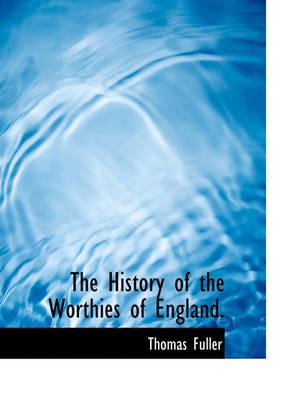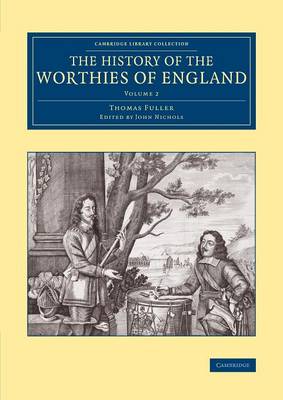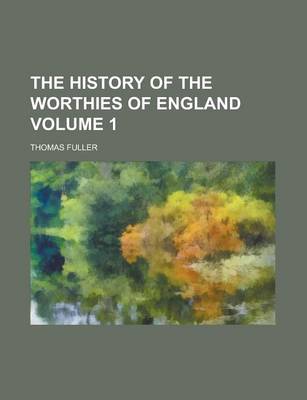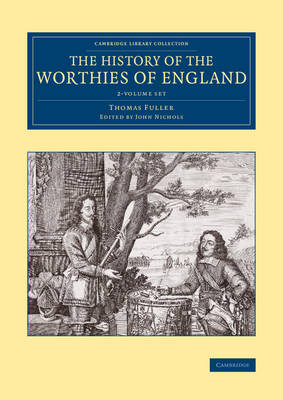Cambridge Library Collection - British and Irish History, General
1 primary work • 4 total works
Volume 1
This extraordinary collection of historical facts, a valuable source for local history, was compiled by Thomas Fuller (1608-61), who came from a clerical family and was educated at Cambridge. He was ordained, had gained a reputation as a preacher, and had published several theological works, when at the outbreak of the Civil War he enlisted as a chaplain in the royalist army. Travelling round the country with Sir Ralph Hopton's troops, he pursued the historical enquiries which would result in the posthumous publication in 1662 of his most famous work. This two-volume edition was annotated by John Nichols, the bookseller and publisher, and published in 1811. The first part of the work consists of twenty-five short chapters which explain the organisation of the work, after which England and Wales are examined county by county: first, natural resources and manufactures, and then notable people, starting with princes and saints.
This extraordinary collection of historical facts, a valuable source for local history, was compiled by Thomas Fuller (1608–61), who came from a clerical family and was educated at Cambridge. He was ordained, had gained a reputation as a preacher, and had published several theological works, when at the outbreak of the Civil War he enlisted as a chaplain in the royalist army. Travelling round the country with Sir Ralph Hopton's troops, he pursued the historical enquiries which would result in the posthumous publication in 1662 of his most famous work. This two-volume edition was annotated by John Nichols, the bookseller and publisher, and published in 1811. The first part of the work consists of twenty-five short chapters which explain the organisation of the work, after which England and Wales are examined county by county: first, natural resources and manufactures, and then notable people, starting with princes and saints.
This extraordinary collection of historical facts, a valuable source for local history, was compiled by Thomas Fuller (1608-61), who came from a clerical family and was educated at Cambridge. He was ordained, had gained a reputation as a preacher, and had published several theological works, when at the outbreak of the Civil War he enlisted as a chaplain in the royalist army. Travelling round the country with Sir Ralph Hopton's troops, he pursued the historical enquiries which would result in the posthumous publication in 1662 of his most famous work. This two-volume edition was annotated by John Nichols, the bookseller and publisher, and published in 1811. The first part of the work consists of twenty-five short chapters which explain the organisation of the work, after which England and Wales are examined county by county: first, natural resources and manufactures, and then notable people, starting with princes and saints.
This extraordinary collection of historical facts, a valuable source for local history, was compiled by Thomas Fuller (1608-61), who came from a clerical family and was educated at Cambridge. He was ordained, had gained a reputation as a preacher, and had published several theological works, when at the outbreak of the Civil War he enlisted as a chaplain in the royalist army. Travelling round the country with Sir Ralph Hopton's troops, he pursued the historical enquiries which would result in the posthumous publication in 1662 of his most famous work. This two-volume edition was annotated by John Nichols, the bookseller and publisher, and published in 1811. The first part of the work consists of twenty-five short chapters which explain the organisation of the work, after which England and Wales are examined county by county: first, natural resources and manufactures, and then notable people, starting with princes and saints.



